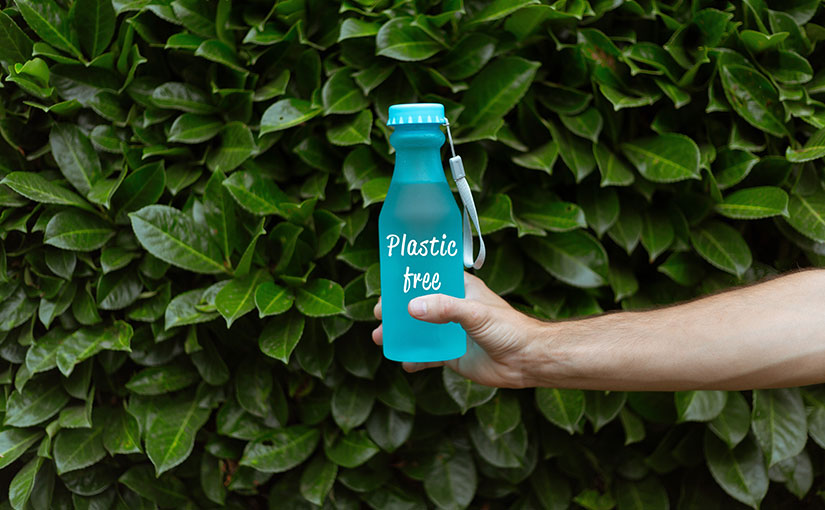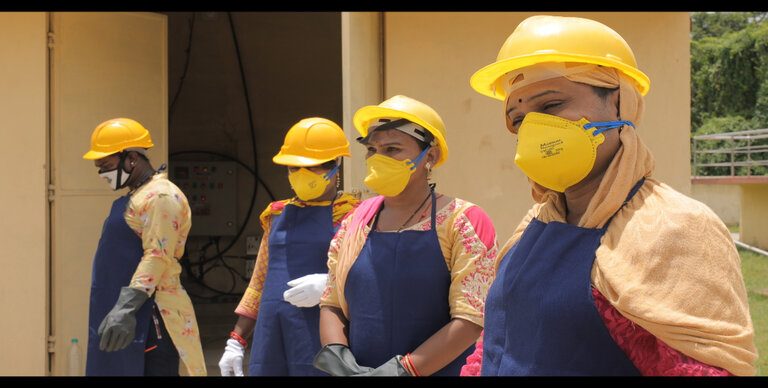Panel Discussion: Innovations and Investments towards a Plastic Free World
This blog is built from insights from a panel hosted at 11th Sankalp Global Summit on ‘Innovations & Investments towards a Plastic Free World.
Circularity of plastics alone can’t be looked in isolation and waste industry in totality should be looked at. Problem is of segregation of waste. Dry waste should be looked as a segment because when say plastic waste we end up including paper etc. and plastic itself is so complex a product (due to polymer combination etc) that some technical knowledge is also required for treatment of plastic waste – Compostable plastics have different grades than industrial plastics and household plastics.
Most of the company in India is small-scale industry with exposure to knowledge and there is need to get all the information on a single platform. A number of companies work in silos and each one is targeting one particular segment of the whole value chain. There is needs to be a collaborative effort to capture the value chain in entirety. Another reason for lack of knowledge is that the entrepreneurs want to hold information with themselves rather taking a collaborative effort to achieve the end objective of plastic free world.
Today because of government regulation there is a positive environment to set up enterprises in the waste management sector. This is arguably the best time to enter into the waste management space for any entrepreneur and hence also for social entrepreneur. However, it is also true that most of the solid waste, electronic waste, plastic waste is collected by the informal sector at large, though we may have a number of sophisticated systems to manage waste. It important to integrate the informal sector into the mainstream and this is possible through a fare wage mechanism. Thus, from a social entrepreneurship perspective ensuring fair wages is the most critical aspect. It is also important that the model of operation is scalable which essentially requires building a strong local ecosystem. The entrepreneur should look to establish his business first and then look for scale up capital from investors. Given the current ecosystem, the entrepreneur should definitely wait to establish first and then scale up. There is always an involvement of human resource that goes into recycling human waste and without that, recycling of waste is not possible.
From the investor’s perspective, there is not a lot investors which are active today in the sector. Though there are many entrepreneur who need capital at regular basis for their day to day business. Its important to think from a whole value chain point of view and not just from small business in bits-pieces. India is well poised for this as it has one of the highest rates of recycling, which involves the entire value chain. However, India also has systemic challenges such as cultural risk, reputational risk etc. Some of the investor communities such GIZ have shown interest to stay put with the sector and have provided grants and loan guarantees to waste management projects in support of their endeavor towards SBM. They have also entered into partnership with firms in India. Partnership of GIZ and Karo Sambhav is one of its kind where GIZ puts 50% and Karo Sambhav puts 50% and GIZ does the on-ground implementation work.
India emits 20 million tons of greenhouse gases because we don’t manage our waste properly. to curb, GIZ is has invested in enterprises and working on the concept of carbon credits. They are asking large indian companies to buy carbon credits from small indian companies. For eg, IT companies are saying we are ready to offset flight emissions and we are ready to support waste enterprises in that area. Its important to make sure that ideas that we develop are not just a marketing gimmick, but turn into a sustainable business models. At the moment, India is one of the heaviest contributor of plastic waste in the world. It is very important for us to make sure that we use moderate our use of plastics. That’s the best way to get towards a plastics waste free world.
There are a number of challenges that still persist. One of the obvious ones is availability of land in the area. Another problem is that of cost escalation due to high transport cost. Then there is also a problem of mixed waste coming at the plant site and there is no to little segregation of waste. People prefer to throw waste in open slot than to pay Rs.30 to the waste picker. The challenges are huge but there is no ‘one-solution-fits-all’ model for waste management. We need to try a number of things and then arrive at one model which will mature as the time progresses.








